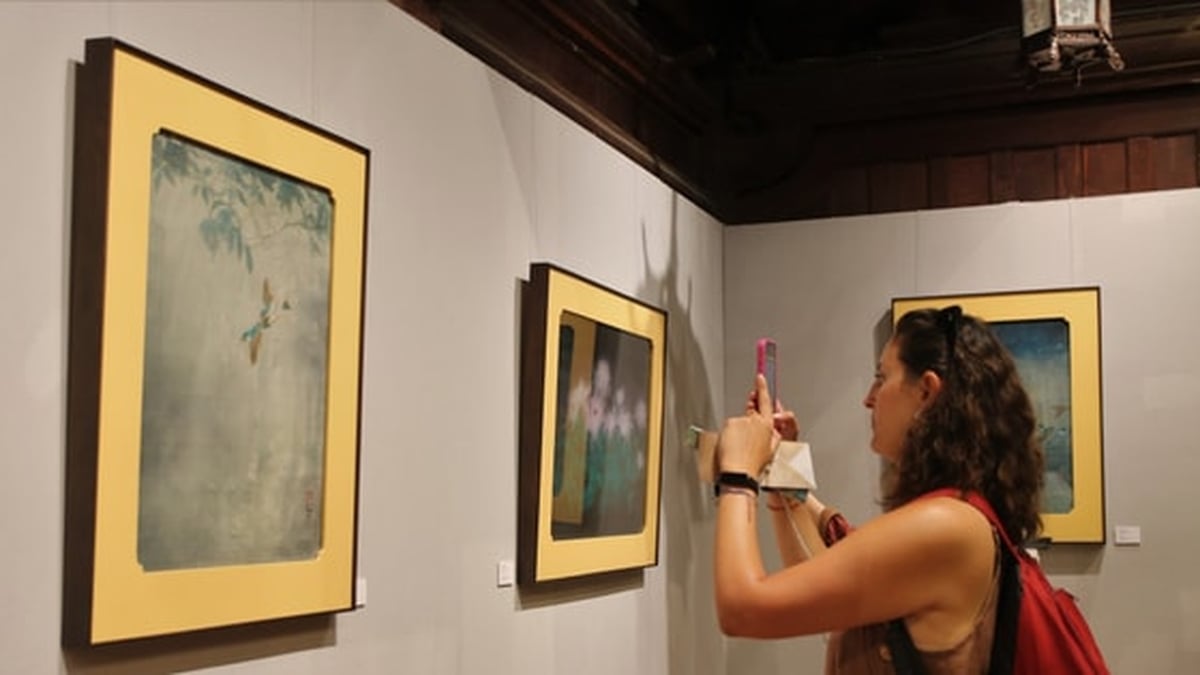 |
| Tahiti Island Beach. Photo: luhanhvietnam.com.vn |
When I stepped off the ship from San Francisco, I had the same image in mind. But when I docked nine days later, I saw a completely different Tahiti. Today, the city of Papeete, the capital of Tahiti, is a thoroughly Europeanized metropolis.
Want to see the images of indigenous life as in the books? Well, easy, the guide seemed to understand, so he quickly took us to visit Norman Hall house. This was the private residence of a famous American writer in the early 20th century, who chose Tahiti as his second home for thirty years, and lived here with his Tahitian wife until the end of his life. His house has been preserved as a memorial house, displaying all his works and memorabilia, and the large front hall is used as a small historical museum about Tahiti.
Here, we can see old paintings, recreating historical images of the first contact of the indigenous people with the ships from Europe. According to the paintings, it seems that these were peaceful and even friendly encounters! The records of the European sailors at that time recounted that the naive indigenous people, seeing the Europeans on the large ship, with the sound of guns in the air, thought that they were gods coming from heaven! They immediately rowed to the large European ship, bringing gifts, and even virgins - the girls considered the most beautiful and virtuous in the tribe, to be "bred" by the gods.
 |
| The author (right) at a booth on the island. Photo: Mai Thuy |
In reality, however, history was not so peaceful. Shortly thereafter, the “gods” brought Tahitians many diseases to which they had no immunity. At the same time, the power of Western guns sparked a brutal war between the small kingdoms of the archipelago. With the support of the British, King Pomaire I defeated all his rivals to become king of Tahiti. The wars, combined with disease, decimated Tahiti’s population by two-thirds.
The Pomaire dynasty is considered by Westerners to have “… brought a period of peace and cultural and economic prosperity to the islands, under the reign of five Tahitian kings”. However, from another perspective, the period of these five kings was also the period when Tahiti gradually lost its sovereignty and cultural identity. From the time of King Pomaire II, the influence of English missionaries became increasingly strong.
In the past, the Maohi, both men and women, wore only a Pareo around their waists, because the island's climate was so cool and temperate that they never felt the need for anything else. But for the missionaries, dressing like that was a sin. In the 19th century, the national dress of Tahiti was a robe that covered them from neck to toe. Along with the change in clothing, the practice of dancing “ori” was banned, because it was “the work of evil”. Banned for more than 60 years, it was not until after the French took Tahiti from the British that the dance was restored. The first time the Tahitians were free to dance enthusiastically was at the “Heiva” ball, ironically on the occasion of… the French national holiday, that is, July 14, 1881.
We entered a large shop on the street, the sign read Tahiti Pearl Market. A girl said bonjour and introduced herself as Bernadette - if it weren't for the Maohi features on her face, she would have been French. Bernadette, of course, did not wear a sarong like the original Tahitian girls, nor did she wear the "traditional" 19th-century dress that covered her from neck to toe. She wore a modern dress, enough to show off the beauty of the Tahitian woman, still mysterious and wild, as it appeared in the famous paintings of the artist Gauguin.
In Bernadette's shop there is only one item: black pearl jewelry, all kinds, all styles. Tahiti's nature is very special, not "blue sea white sand" like many places, but everywhere you see black sand beaches mixed with volcanic lava. The oysters lying in the sand, holding the sand, have produced the most famous black pearls in the world . (Although some places also produce black pearls, like Hawaii and some other places, Tahiti's pearls are known as "South Sea black pearls" - black pearls of the South Sea, which are much more valuable). Entering the capital city of Papeete, visitors will encounter many "pearl markets", from popular to high-end. South Sea pearls from these markets have spread all over the world .
We returned to the ship at five o'clock in the afternoon. Although we still wanted to wander the streets of Papete, we had to go back because the ship had invited a folk dance band to perform, right before the ship weighed anchor and left the dock. The ship waited for us in the harbor, with the Tahitian flag fluttering on top (according to maritime custom, when a ship docks in a country, it must fly its flag). The image of the harbor in the afternoon under the sunset suddenly reminded me of the day the first Vietnamese people set foot in Tahiti: in 1885, the regent Nguyen Van Tuong was exiled, and in 1911, the patriot Nguyen Van Cam was transferred here from the Marquises Islands. Nguyen Van Cam, an exceptionally intelligent person, had been given the title "Ky Dong" by King Tu Duc since he was eight years old. He had repeatedly asked to return home, but had to live the rest of his life in a foreign land. When he died, he still kept a silver-tipped cork hat, which he had brought with him since leaving Vietnam...
Like Vietnam, Algeria, Morocco, and others, Tahitians have also fought for their independence many times. However, despite being granted autonomy in 1977, Tahiti has never been independent. Tahiti is still considered an overseas territory of France, the “remote heel of France in the Southern Hemisphere”, with most of its citizens bearing French names and French nationality. This proves that the idea that “Without fighting, when the time comes, the colonies will naturally become independent” is a very… unhistorical idea.
Night fell over the vast ocean. After the performance, the artists boarded a small boat to leave, and the large ship silently weighed anchor and sailed away. Goodbye, the black pearl of the South Sea, goodbye to the land known as “paradise on earth”. With 20 percent of the population belonging to the super-rich class, with owners of luxury private yachts docking almost half the bay, Tahiti is truly a fairyland. But with 80 percent of Tahitians classified as poor on the island, it could very well be a paradise lost.
Source


































































































Comment (0)